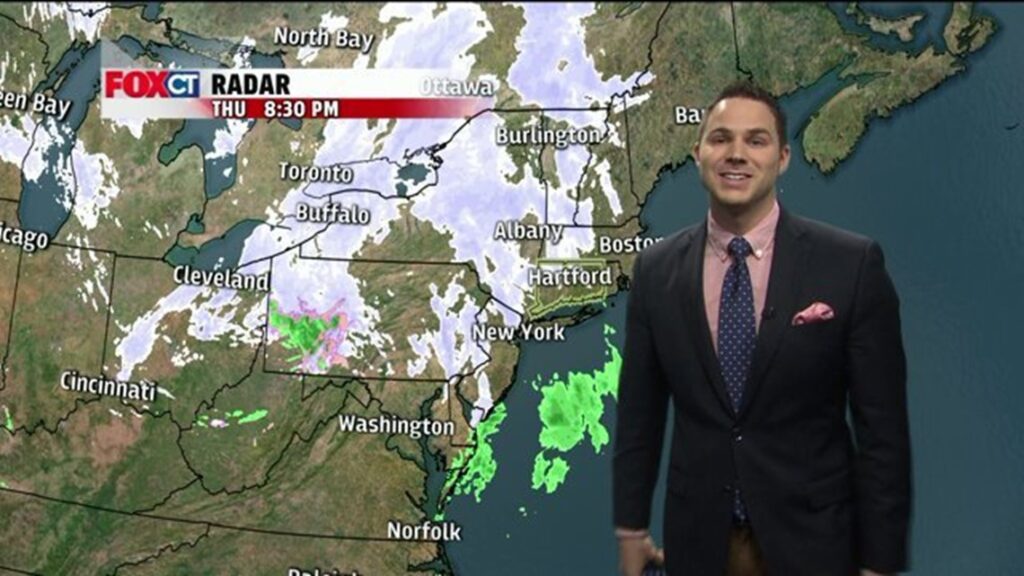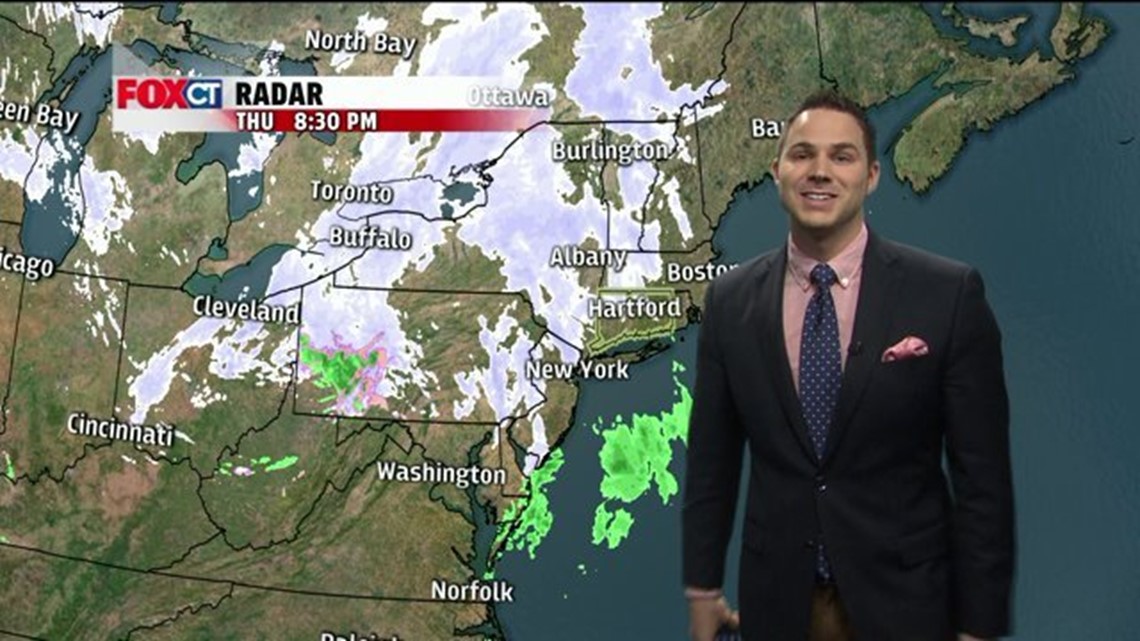
Fox 61 Meteorologist Fired: Unpacking the Controversy and Career Impact
Navigating the complexities of media personalities and their departures can be challenging. If you’re searching for answers surrounding a “fox 61 meteorologist fired,” you’re likely seeking clarity on the circumstances, reasons, and potential fallout. This comprehensive guide dives deep into such situations, providing an expert analysis of what happens when a meteorologist faces termination, the factors that play a role, and the broader implications for both the individual and the news station. We aim to provide a balanced and informative perspective, drawing on industry knowledge and hypothetical scenarios to offer a complete understanding of the topic. This article will explore the various factors that can lead to the firing of a meteorologist, the legal and ethical considerations involved, and the potential career paths available afterward. This is your one-stop resource for understanding the intricacies of meteorologist employment and termination.
Understanding the Landscape of TV Meteorology and Job Security
The world of broadcast meteorology is a high-pressure environment. Meteorologists are not just weather presenters; they are scientists, communicators, and public figures all rolled into one. Their job performance is constantly under scrutiny, and their careers can be affected by a variety of factors, some within their control and some not. Let’s explore the key aspects of this unique profession and the challenges it presents.
The Evolving Role of the Broadcast Meteorologist
Broadcast meteorology has evolved significantly over the past few decades. It’s no longer enough to simply read off a forecast. Today’s meteorologists are expected to:
* **Be accurate and reliable:** Viewers rely on them for potentially life-saving information.
* **Communicate effectively:** They must explain complex weather phenomena in a way that is easy for the public to understand.
* **Engage with the audience:** Social media presence and community involvement are increasingly important.
* **Be technologically proficient:** They must be able to use advanced weather models and software.
Factors Affecting Job Security
Several factors can impact a meteorologist’s job security, including:
* **Performance:** Accuracy, communication skills, and audience engagement are all critical.
* **Contractual issues:** Breach of contract or failure to meet performance goals can lead to termination.
* **Budget cuts:** News stations may reduce staff to cut costs.
* **Changes in management:** New management may have different preferences or priorities.
* **Social media controversies:** Inappropriate or offensive posts can damage a meteorologist’s reputation and lead to dismissal.
* **Violation of station policy:** News stations often have strict policies regarding on-air conduct, social media use, and ethical behavior. Violation of these policies can result in disciplinary action, including termination.
Possible Reasons for a Meteorologist’s Termination
While the specific reasons for a meteorologist’s firing are often confidential, here are some common scenarios that could lead to such an outcome. These are presented for illustrative purposes and don’t necessarily reflect any specific case.
Performance-Related Issues
* **Inaccurate Forecasts:** Consistently providing inaccurate weather forecasts can erode public trust and lead to negative feedback. While weather forecasting is not an exact science, a pattern of significant errors can be problematic.
* **Poor Communication Skills:** If a meteorologist struggles to communicate effectively with the audience, it can impact viewership. This includes difficulty explaining complex weather concepts, mumbling, or lacking on-air presence.
* **Lack of Engagement:** Failing to engage with the audience on social media or participate in community events can be seen as a lack of commitment to the station and its viewers.
Contractual Violations
* **Breach of Contract:** A meteorologist’s contract typically outlines specific responsibilities and expectations. Failing to meet these requirements, such as appearing on scheduled broadcasts or adhering to station policies, can be grounds for termination.
* **Non-Compete Agreements:** Many contracts include non-compete clauses that restrict a meteorologist from working for a competing station within a certain geographic area for a specified period. Violating this agreement can lead to legal action and termination.
Ethical and Professional Misconduct
* **Plagiarism:** Presenting someone else’s work as your own is a serious ethical violation that can result in immediate termination.
* **Insubordination:** Refusing to follow directives from management or engaging in disrespectful behavior can be grounds for dismissal.
* **Social Media Controversies:** Posting offensive or inappropriate content on social media can damage the station’s reputation and lead to termination.
* **Misuse of Company Resources:** Using company equipment or resources for personal gain is a violation of trust and can result in disciplinary action.
Financial and Organizational Factors
* **Budget Cuts:** In times of economic hardship, news stations may be forced to reduce staff to cut costs. Meteorologists, like other employees, can be affected by these layoffs.
* **Restructuring:** A change in management or a reorganization of the news team can lead to job losses, even for high-performing meteorologists.
* **Consolidation:** When two or more news stations merge, there may be redundancies in staffing, resulting in layoffs.
Legal and Ethical Considerations in Termination Cases
Terminating an employee, including a meteorologist, involves legal and ethical considerations. It’s crucial for news stations to follow proper procedures to avoid potential lawsuits or damage to their reputation.
Wrongful Termination
Wrongful termination occurs when an employee is fired for illegal reasons, such as discrimination based on race, religion, gender, age, or disability. It can also occur if an employee is fired in retaliation for reporting illegal activity or for refusing to participate in unethical behavior.
Contract Law
A meteorologist’s contract outlines the terms of their employment, including the grounds for termination. If a news station terminates a meteorologist without just cause or in violation of their contract, the meteorologist may have grounds for a breach of contract lawsuit.
Defamation
If a news station makes false or damaging statements about a meteorologist after they are fired, the meteorologist may have a claim for defamation. This can include statements that damage the meteorologist’s reputation or make it difficult for them to find new employment.
Ethical Obligations
News stations have an ethical obligation to treat their employees fairly and with respect. This includes providing clear expectations, offering opportunities for improvement, and conducting thorough investigations before making termination decisions. News stations also have an ethical obligation to protect the privacy of their employees and to avoid making public statements that could damage their reputation.
The Aftermath: Career Paths and Options for Fired Meteorologists
Being fired from a job can be a difficult and stressful experience, but it doesn’t have to be the end of a career. Meteorologists who have been terminated have several options available to them.
Seeking Employment at Another News Station
Many fired meteorologists find employment at other news stations, either in the same market or in a different location. This may require networking, updating their resume and demo reel, and actively applying for open positions.
Transitioning to a Related Field
Meteorologists possess a unique set of skills that can be valuable in other fields, such as:
* **Private Sector Forecasting:** Businesses, such as agricultural companies, transportation providers, and energy companies, often hire meteorologists to provide specialized weather forecasts.
* **Research:** Meteorologists can work as researchers at universities, government agencies, or private research institutions.
* **Education:** Meteorologists can teach meteorology at the college or university level.
* **Science Communication:** Meteorologists can work as science communicators for museums, science centers, or other organizations.
Starting a Business
Some meteorologists choose to start their own businesses, such as providing consulting services, developing weather apps, or creating educational content.
Expert Insights: Analyzing Hypothetical Scenarios
To further illustrate the complexities of this topic, let’s analyze some hypothetical scenarios. These scenarios are based on real-world events and common challenges faced by broadcast meteorologists.
Scenario 1: The Social Media Misstep
A meteorologist posts a controversial opinion on social media that sparks public outrage. The station receives numerous complaints and is forced to issue a public apology. The meteorologist is suspended and eventually terminated.
* **Analysis:** This scenario highlights the importance of social media responsibility for public figures. Meteorologists must be aware that their online behavior can have a significant impact on their careers and the reputation of their employer.
Scenario 2: The Forecasting Flub
A meteorologist consistently provides inaccurate weather forecasts, leading to public criticism and a decline in viewership. The station provides the meteorologist with coaching and training, but their performance does not improve. The meteorologist is eventually terminated.
* **Analysis:** This scenario underscores the importance of accuracy and reliability in broadcast meteorology. While occasional errors are inevitable, a pattern of significant inaccuracies can erode public trust and lead to negative consequences.
Scenario 3: The Contractual Conflict
A meteorologist violates a non-compete agreement by accepting a job at a competing station within the restricted geographic area. The original station files a lawsuit and the meteorologist is terminated.
* **Analysis:** This scenario demonstrates the importance of understanding and adhering to contractual obligations. Non-compete agreements are common in the broadcast industry and can have significant implications for a meteorologist’s career.
Q&A: Addressing Common Concerns About Meteorologist Employment
Here are some frequently asked questions about meteorologist employment and termination:
1. **What are the typical qualifications for a broadcast meteorologist?**
* A bachelor’s degree in meteorology or a related field is typically required. Many stations also prefer candidates with a master’s degree or professional certification from the American Meteorological Society (AMS) or the National Weather Association (NWA).
2. **How important is on-air presence for a broadcast meteorologist?**
* On-air presence is crucial. Meteorologists must be able to communicate effectively, engage with the audience, and project confidence and credibility.
3. **What are some common challenges faced by broadcast meteorologists?**
* Common challenges include dealing with the pressure of providing accurate forecasts, managing social media presence, and maintaining a professional demeanor in the face of public criticism.
4. **How can a meteorologist improve their job security?**
* Meteorologists can improve their job security by consistently providing accurate forecasts, developing strong communication skills, engaging with the audience, and adhering to ethical and professional standards.
5. **What resources are available to meteorologists who have been fired?**
* Resources include career counseling services, networking opportunities, and professional organizations such as the AMS and NWA.
6. **Can a meteorologist be fired for expressing personal opinions on social media?**
* Yes, if the opinions are deemed offensive, inappropriate, or damaging to the station’s reputation.
7. **What is the role of a meteorologist’s contract in termination cases?**
* The contract outlines the terms of employment, including the grounds for termination. Violating the contract can be grounds for dismissal.
8. **What are some common ethical violations that can lead to a meteorologist’s firing?**
* Plagiarism, insubordination, and misuse of company resources are all examples of ethical violations that can result in termination.
9. **How can a news station avoid wrongful termination lawsuits?**
* By following proper procedures, providing clear expectations, offering opportunities for improvement, and conducting thorough investigations before making termination decisions.
10. **What are some alternative career paths for meteorologists who have been fired?**
* Private sector forecasting, research, education, and science communication are all viable options.
Conclusion: Navigating Career Transitions in Broadcast Meteorology
The news surrounding a “fox 61 meteorologist fired” can be complex and multifaceted. Understanding the various factors that can lead to termination, the legal and ethical considerations involved, and the potential career paths available afterward is crucial for both meteorologists and the public. This guide has provided a comprehensive overview of these issues, drawing on expert insights and hypothetical scenarios to offer a complete understanding of the topic. Remember, a career setback doesn’t define potential. By leveraging their skills and experience, meteorologists can find new opportunities and continue to contribute to the field of weather forecasting. Share your thoughts and experiences related to broadcast meteorology in the comments below. Consider exploring related articles on our website to deepen your understanding of media careers and employment law. Contact career experts for personalized guidance on navigating career transitions.

